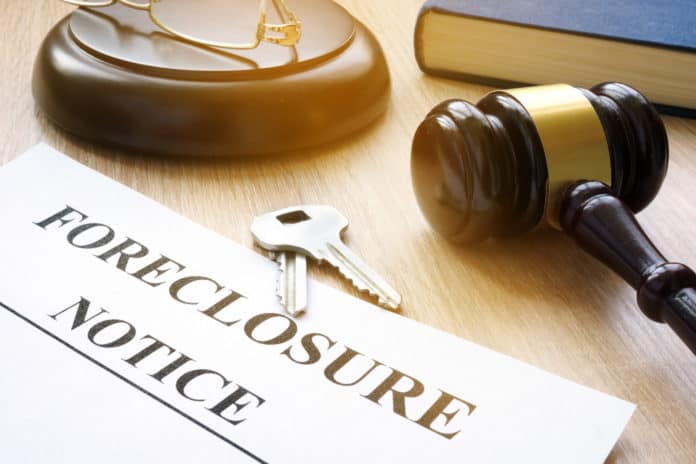Few things in life are more frightening than receiving a notice of default from your mortgage lender. You know you can’t pay. Your heart sinks and all feels hopeless.
We’re here to tell you, it’s not hopeless. There’s actually a lot you can do to avoid facing foreclosure. In this guide, we explain many of these strategies.
But don’t procrastinate. If you wait too long, you could miss your chance.
Read on to learn how to stop a foreclosure sale.
Negotiate With Your Lender
The first thing you should do is talk to your lender right away. No matter what scenario you’re hoping for in the end, there may be a compromise that you and your lender can agree on. And the sooner you do, the better.
If you’re feeling intimidated by this idea, remember this: nobody wins in a foreclosure. You lose your home and the lender doesn’t get the full amount promised to them. It’s also a big hassle all around.
As such, most lenders will gladly pursue a different option to avoid this. So, see what arrangement the two of you can come up with.
Ask Your Lawyer
Getting professional legal help is also a great idea. Your lawyer will know all the local laws surrounding your various options. And they’ll know the best courses of action you should try and how to increase your chances of success.
Lastly, they also know which options are not a good idea to try. Before you try any of the strategies below, talk to your lawyer.
Apply For Loan Modification
One option to explore with your lender is a loan modification. Your lender might be able to modify the conditions of your loan, allowing you to pay back what you owe through modified payments. This way, they don’t have to foreclose.
Unfortunately, state/federal laws might prevent the lender from modifying the loan after the foreclosure process has started. Again, this is why you want to get a lawyer involved.
Apply For a Deed in Lieu of Foreclosure
A deed in lieu of foreclosure is where you sign the house back over to the lender without a foreclosure sale. It’s also kind of a weird, longshot of an option.
For one thing, this doesn’t make much of a difference to you. You still lose your home and devastate your credit.
And the lender is less protected this way, too. For example, for all they know, you’re faking financial difficulty just to avoid paying what you owe them. Foreclosure helps to ensure that your inability to pay is real.
For these reasons, lenders rarely agree to this. Still, it is one option you can try.
Loan Assumption
A loan assumption is where you transfer your current loan agreement over to someone else. You sign the deed and the loan over to this person and they take over your responsibility to repay. They’ll pay your past-due amount upfront, like a downpayment. Then, they continue making the regular monthly payments that you originally agreed to make.
However, most loans today have a “due on sale” clause. This clause demands repayment in full by the borrower if and when the deed is signed over to another owner.
In this case, transferring your loan to someone else via assumption is prohibited. Unless, that is, your lender agrees to modify your loan and eliminate the “due on sale” clause.
A Lease-Option
With a lease-option, a buyer lives in your home as a tenant, paying you rent. They also pay you for the option to eventually buy the home.
Then, you use the option payment to pay off your past-due amount. And you use the rent they pay to continue making your monthly mortgage payments. As soon as they have enough credit and a downpayment, they can purchase the house from you.
A Short Sale
A short sale is where you sell your home after defaulting on your loan but before the foreclosure auction is scheduled. It preserves your credit and saves your lender the trouble of foreclosing/reselling your home. Thus, it’s the most obvious option to consider.
Unfortunately, it’s not as easy as it sounds. Homes often stay on the market for years before selling.
And lowering the price far below market value won’t guarantee that you’ll sell on time, either. Plus, your very low price might not be enough to persuade your lender to call off the foreclosure.
But it’s definitely worth a try. Just make sure to enlist help from a real estate agent who knows what they’re doing.
Apply For a Foreclosure Bailout Loan
There are also loans to stop foreclosure that you can apply for. These are basically a refinancing option.
The new lender pays off the old loan and your debt is transferred to them. You get a new, restructured loan with new conditions.
As great as this sounds, and often is, it can be very risky. For one thing, the fees and interest rates that come with these can be quite high. And no matter what, this option will add even more to your debt.
Worst of all, you could end up unable to pay this loan the same as you were unable to pay the first. Only, now, you have an even greater debt.
On the other hand, it does eliminate your “past due” debt, putting you back on track with your monthly payments. This may give you enough financial stability to stay current. Plus, it saves you from losing your house.
File For Bankruptcy
Filing for bankruptcy is a drastic, frightening option that nobody wants to consider. It also puts you in extremely bad credit standing for years.
Still, it is sometimes the least financially devastating option in the long run. And it automatically cancels a foreclosure.
Do not, however, attempt this option without help from a lawyer.
Spread the Word About How to Stop a Foreclosure Sale
Now that you know how to stop a foreclosure sale, don’t waste any more time! Follow the steps above to avoid foreclosure before it’s too late.
Also, keep this guide for reference in case you forget any of these points. And, please, share this with anyone you know who’s in danger of losing their home.
Now, do you need some more helpful advice? We’ve got plenty of tips on loans, real estate, credit, and more. Just click the categories on the menu bar at the top of this page to learn all you need to know.












